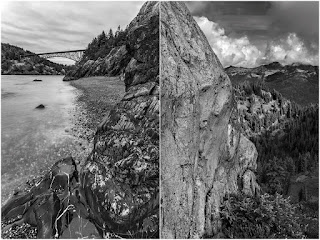"A famous thorny issue in philosophy is the so-called infinite regress problem. For example, if we say that the properties of a diamond can be explained by the properties and arrangements of its carbon atoms, that the properties of a carbon atom can be explained by the properties and arrangements of its protons, neutrons and electrons, that the properties of a proton can be explained by the properties and arrangements of its quarks, and so on, then it seems that we're doomed to go on forever trying to explain the properties of the constituent parts. The Mathematical Universe Hypothesis offers a radical solution to this problem: at the bottom level, reality is a mathematical structure, so its parts have no intrinsic properties at all! In other words, the Mathematical Universe Hypothesis implies that we live in a relational reality, in the sense that the properties of the world around us stem not form properties of its ultimate building blocks, but from the relations between these building blocks. The external physical reality is therefore more than the sum of its parts, in the sense that it can have many interesting properties while its parts have no intrinsic properties at all."
- Max Tegmark (1967 - )







